

When building a baseball card collection, the thrill of the hunt is as much a part of the hobby as the cards themselves.
There’s a charm to each method of building your collection. Whether you’re slowly building one card at a time or populating your collection at once by buying trading card lots.
While carefully picking each card for your collection has its appeal and upside, few can deny the charm of buying trading card lots. It’s trusting your luck and rolling the dice.
However, even when there’s no treasure in a box, you still get tons of trading cards at truly affordable prices. There’s also the experience of going through the hoard.
Goodwill, renowned for its mission of providing job training has expanded its reach into the trading cards realm. The Goodwill marketplace is a hidden gem for trading card enthusiasts. They offer a unique opportunity to explore, discover, and collect trading cards in a thrift store environment.
This article will explore the fascinating world of buying baseball cards from the Goodwill marketplace. It shall cover everything from where to find these cards at the physical stores to how to navigate their online stores and get the most when buying these cards.
Goodwill was founded in 1992 by Rev. Edgar J. Helms, a Methodist minister and early social innovator. He collected used household goods and clothing in wealthier areas of the city, then trained and hired those who were poor to mend and repair the used goods.
After which, the goods were given to the people who repaired them or resold them. Their philosophy was “a hand up, not a hand out.”
Today, Goodwill is a $5 billion nonprofit organization. They provide free career counseling and skill training to job seekers. More relevantly, they’re also the world’s largest thrift store.
You can find everything from jewelry to electronics, books, books, and trading cards. As expected from a thrift store, trading cards are available in “lot.”

While you can get the occasional single card deal at Goodwill, they’re mostly famous for selling trading cards in a lot. Unlike most traditional stores that have trading cards on offer, Goodwill offers trading card lots. According to the PSA glossary of sports terminology,
Lot
The meaning of “lot” is two-fold in the sports collectibles market. The first meaning simply describes a group of cards. One might say, “I have a lot of 100 Ken Griffey card….”
These lots contain a variety of cards spanning different genres and eras, making each purchase akin to a treasure hunt. However, you’re not just blindly buying unknown cards, as most lots are carefully labeled. You would at least have a general idea of what cards to expect. For example, you can find a Baseball Stars Cards box lot, Bundle of Assorted Sports Trading Cards, or 3.9 Lbs Of Pokémon Cards Bulk w/ Holofoils And Rares. In each case, buyers have a general idea of the type of cards to expect from the lot.
There are two options for buying trading cards from Goodwill;
Goodwill’s physical stores spread across many communities, have long been a haven for thrifty shoppers. You can visit these stores to explore their trading card lots, often found in the toy or collectibles sections. The in-store experience is an adventure, as you never know what you’ll stumble upon. The ever-changing inventory ensures that each visit is a new opportunity to find unexpected treasures.

Below are some of the biggest pros and cons of shopping at Goodwill:
Tangible experience: Shopping in a physical store allows you to physically inspect items before purchasing. This is especially advantageous when it comes to trading cards where the cards’ condition is crucial.
Unique finds: The trading card inventory at Goodwill stores is constantly changing. At any time, you can come across amazing and unexpected items that aren’t available online.
Immediate gratification: You can take your purchases home immediately and start going through your haul, avoiding shipping wait times associated with online shopping.
No shipping costs: You won’t incur shipping fees when buying in-store.
Limited selection: Physical stores have a finite amount of space. This entails a more limited selection compared to their online counterparts.
Travel and time: Shopping in-store requires physical presence. You’ll need to travel to the location, potentially spending more time on the shopping trip.
Crowds and competition: Busy stores mean more competition for desirable trading card lots, especially during sales or promotions.
When shopping for trading cards at a Goodwill store, these are places you’re more likely to find them, so you avoid wasting time roaming the store.
For people who prefer the convenience of online shopping, Goodwill’s online marketplace is always an option. You can browse through their listings, read descriptions, and make purchases from the comfort of your own home. Goodwill has three website options for online shoppers.

As its name implies, Goodwill Books has just book offerings, and any trading card search will bring books on the subject. Shop Goodwill and Goodwill Finds have baseball trading card offerings with one key distinction. The key difference between these websites lies in their pricing models.
Goodwill Finds presents a straightforward and familiar approach to online shopping. It operates on a fixed-price “buy now” model, where each product for sale has a listed price. Shoppers can browse items at their leisure, with the price displayed alongside each listing. This model is akin to traditional e-commerce platforms, making it easy for buyers to assess the cost and make purchasing decisions without the added complexity of bidding or auctions.

Shop Goodwill employs an auction model. On this platform, items are put up for bid, and users can place competing bids to secure the item. The highest bidder at the end of the auction wins the item.
This dynamic pricing approach adds an element of excitement to the shopping process, as buyers compete to attain their desired items, often at a price they find favorable. Collectors familiar with eBay auctions would feel at home shopping at ShopGoodwill.com as it functions the same way. Cards go up for sale, and people bid what they think is a fair price to pay. The winner gets the card, and it is then shipped to them.

Lots with good cards visible would ensure increased bidding activity, with bidding amounts soaring. There are a lot of bulk auctions with just a handful of pictures attached to each listing. You will likely have a general idea of what type of cards you’ll be getting but little idea of its potential value.
Once a purchase is made, your card will be shipped to your location. You can also opt for the “pickup option.” This means you’ll have to pick them up from your local Goodwill store. However, auctions with this option are very limited.
Seeing as the same parent company owns both sites, they mostly carry a lot of the same types of cards and collections. Some collectors believe that the lots that don’t get sold at auction on ShopGoodwill.com end up on GoodwillFinds.com. And lots that don’t get sold on auction end up on Goodwill Finds at a much cheaper price.
Shop Goodwill offers the simplicity of fixed prices, while Goodwill Finds introduces the thrill of auctions, where the final cost is determined by the competitive spirit of the bidders. Depending on your shopping preferences and the type of buying experience you seek, one of these platforms may be more appealing to you.
Convenience: Goodwill online marketplaces offer the convenience of shopping from anywhere with an internet connection, making it accessible at any time.
Wider selection: Goodwill online marketplaces often feature a larger and more diverse selection of trading cards, including rare cards that may not be available in their physical stores.
Search and filters: You can use search and filtering options to quickly find specific types of cards, saving time compared to browsing in-store.
Price flexibility: Goodwill online store uses the auction model, which allows you to bid on specific lots. Great deals can be found this way.
Shipping costs: Shopping online usually involves shipping fees, which can add to the overall cost of your purchase. However, most items have the “store pickup” option, which saves you from paying shipping costs.
No physical inspection: You can’t physically inspect the cards before purchasing, which can be a drawback when buying trading cards as the condition is crucial.
Shipping wait time: You’ll need to wait for your purchase to be shipped and delivered, which can be less convenient if you need the item immediately.
Online competition: Goodwill online marketplaces often have many shoppers interested in the same trading card lot, potentially leading to more competitive bidding. In such cases, you might have to pay more than you consider a fair price if you are committed to getting the card lot in question.
Goodwill obtains its trading card inventory through various means, ensuring a diverse selection of cards. Here are three primary ways in which they acquire products:
Donations are the primary way Goodwill stocks their inventory. People from all walks of life generously donate a wide range of items, from household goods to electronics and trading cards. These donations are typically made at Goodwill collection centers, donation bins, or directly at Goodwill stores. Once received, the donated items are sorted, inspected, and placed on the store’s shelves or online marketplace for sale.
According to Goodwill’s mission, the revenue generated from these donations supports their employment and job training programs.
Goodwill also acquires items through strategic store purchases. While most of their inventory comes from donations, Goodwill occasionally buys merchandise from sources like liquidation auctions or overstock inventory. These store purchases can include new or gently used items, helping Goodwill maintain a diverse inventory.
Some businesses and corporations donate excess inventory or overstock items to Goodwill. It’s a win-win scenario, as the companies can benefit from tax deductions while Goodwill receives items contributing to its retail operations.
Goodwill stores have a reputation for hiding treasures among the everyday items on their shelves, and trading cards are no exception. There are tons of tweets and YouTube videos of people who have stumbled upon valuable trading cards from Goodwill. This YouTube user found a $400 Pat Mahomes RC card in a $15 box of Goodwill cards. He’s not alone; there are several YouTube videos of users unboxing Goodwill cards and making a decent profit from each box.
However, while people have found expensive baseball cards in their Goodwill bulk buy, the odds of that happening are low. More and more people are becoming aware of the value of trading cards, and most have an expert inspect their binders before donating them to Goodwill. Additionally, Goodwill like most big chain thrift stores is no longer oblivious to the possible value of collectors’ items donated to them. In most donation centers, all donated items are sent to a centralized center where they are sorted and organized. Most valuable cards are picked through at this point. Of course, most times, a gem or two sneak through to be found by a lucky buyer.
Lastly, even when you do find a good card, it’ll likely not be worth as much ungraded. There are various reasons to grade your cards with the foremost being a boost in value. This post talks on how to analyse your cards before sending them for grading.
While it’s true that stumbling upon a truly valuable and rare trading card in a Goodwill bulk buy might be an infrequent occurrence, it shouldn’t deter collectors from the sheer joy that this experience can bring. The act of sifting through stacks of cards, discovering hidden gems, and the anticipation of uncovering that one card with personal or even unexpected value is a thrill that every collector should experience.
The essence of collecting isn’t solely about amassing a trove of valuable items; it’s also about the journey, the stories, and the excitement that each card carries. Goodwill’s trading card lots provide a unique and affordable way to immerse yourself in the world of collecting, whether you’re an enthusiastic hobbyist or a casual explorer.
The cards you discover might not always command high prices on the market, but they can hold sentimental value or become cherished additions to your collection. Perhaps a childhood favorite, a nostalgic connection, or a card that sparks the curiosity to explore a new aspect of the hobby. While finding a hidden fortune is an exciting possibility, the journey itself is what truly makes buying baseball cards from Goodwill an entertaining adventure worth embarking on.
In conclusion, buying trading cards from Goodwill, whether in-store or through their online marketplaces, offers a unique way to build your collection quickly. The charm of purchasing card lots, where surprises abound, is an experience that keeps collectors returning for more.
Lastly, Goodwill’s mission-driven approach ensures that every purchase contributes to the greater good. This makes the joy of collecting trading cards even more rewarding. According to Eileen Aparis, the Vice President of Mission,
“A lot of folks in the community think that we’re just a thrift store, but we’re so much more than that…. the moment you make a purchase or donation, your hard-earned money helps people find meaningful jobs, not just here at Goodwill but in businesses all around the community…. every purchase made at the retail store all goes back to the community.”
So, whether you’re a seasoned collector or a newcomer to the hobby, consider trying Goodwill and immerse yourself in card lot treasure hunting. I’ll round up this article with the words of reddit user AnnoyingMouse8522
Top 5 Sports Card Athletes to invest in RIGHT NOW (big ROI potential!)
 0:58
0:58
The best small town card shop? 👀
Sports Card Scavenger Hunt! (5,000 Subscriber Special!)
I hit a SWEET auto from the #1 overall pick at PCB hobby
The Ultimate 2024 Football Card Brand Tier List (Panini vs. Topps and more!)
2025 Topps All Star Game Mega Box Product Review
Ripping the new Topps All Star Game mega box.
Is this new sports card store the BEST VALUE around?
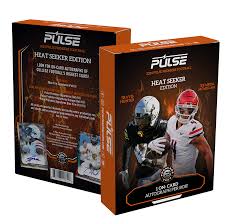
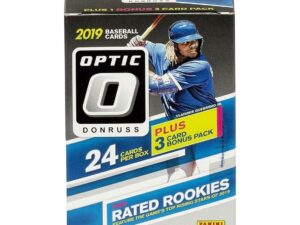
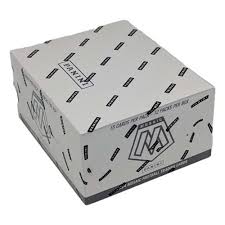
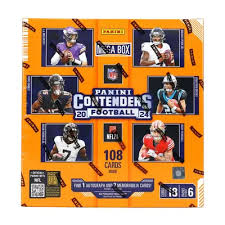
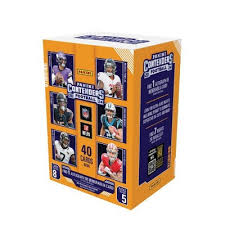
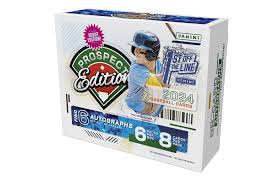
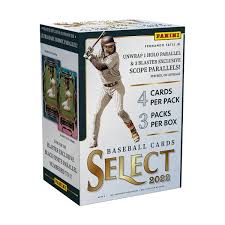
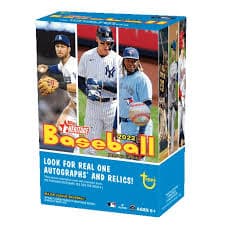
2022 Topps Heritage Baseball Blaster Box Configuration: 7 Packs per Box – 9 Cards per Box. Plus 1 extra pack.
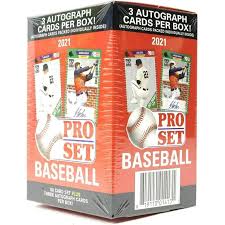
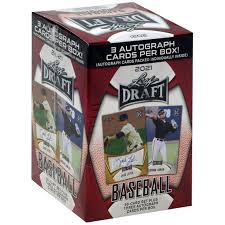
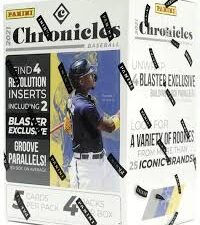
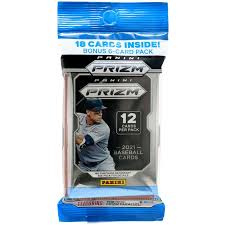
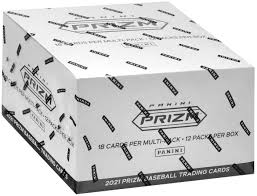

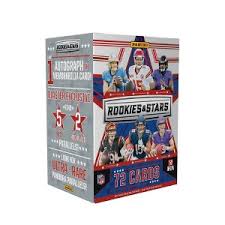
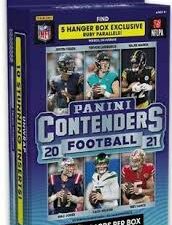
Keep up on breaking Sports Card News, our latest articles, product specials and exclusive content with expert analysis of hobby trends.

© Copyright 2025 - All rights reserved Cardlines.com / Media Techs LLC - Sports Card News, Reviews, Releases and BREAKS - #thehobby.
Important: When you click on links to various merchants on this site and make a purchase, this can result in this site earning a commission. Affiliate programs and affiliations include, but are not limited to, the eBay Partner Network.
What you need to know about Cal Raleigh 👀
Cardlines 6 hours ago